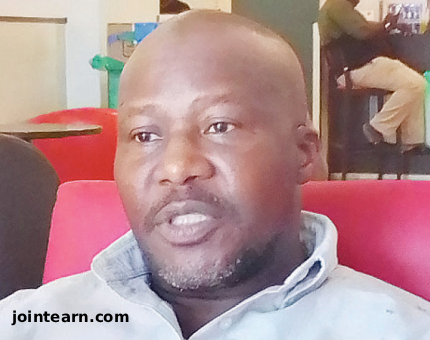
Henry Olofin, a United States–based entrepreneur and consultant, remains deeply passionate about Nigeria despite living abroad. In this interview, he argues that Nigeria’s greatest obstacle is not bad politics or poor leadership, but the mindset of its people. According to him, until Nigerians rediscover integrity, discipline, and patriotism, no reform or leader can truly move the nation forward.
“Our problem is not leadership — it’s attitude”
“What worries me most about Nigeria is our attitude — both leaders and followers,” Olofin said. “A shift in mindset is necessary for Nigeria to advance. Otherwise, we’ll keep going in circles.”
He dismissed the popular belief that leadership alone is to blame for Nigeria’s woes.
“The same attitudes we condemn in our leaders exist in our homes, churches, and offices. Our leaders come from among us. If many of those complaining were put in power today, they’d probably do worse,” he said.
For Olofin, true change begins when Nigerians reform their personal conduct — how they think, act, and treat one another.
Politics as business
Olofin criticised the current political culture, describing it as transactional rather than service-driven.
“For most politicians, politics is now a business — a route to power and wealth, not a call to serve. And for voters, elections have become opportunities to collect money. That mindset destroys accountability.”
He argued that genuine public service should be treated as a duty, not a favour. “If you take a public job, do it well. If the pay is too small, find another job. Don’t see office as an opportunity to extort people,” he said.
The culture of greed
According to Olofin, Nigeria’s business culture mirrors its politics — driven by greed rather than value.
“In many countries, people build wealth through service and consistency. But in Nigeria, everyone wants to make all their profit in one day. That attitude stifles growth and erodes trust,” he said.
He added that Nigeria will remain “potentially great” until citizens adopt values like honesty, reliability, and fair competition.
Ethnicity over competence
On national unity, Olofin lamented that Nigerians still prioritise tribe and religion over merit.
“We don’t see ourselves as Nigerians first. Leadership should never be about where someone comes from, but what they can offer. This obsession with zoning and ethnicity has destroyed our sense of nationhood,” he said.
Building institutions, not personalities
Olofin echoed former President Goodluck Jonathan’s famous call to “build institutions, not individuals.”
“Today, everything revolves around personalities. Once a leader leaves, all their projects die. We must build systems that outlive leaders.”
He also condemned money politics, saying it has turned elections into investments for the wealthy. “Until we separate money from politics, capable Nigerians will keep avoiding public office,” he warned.
Redefining success and patriotism
Olofin urged Nigerians to redefine success, noting that materialism has corrupted national values.
“Success is not about cars or mansions. It’s about how your work benefits your community — through jobs, education, or innovation. We must celebrate teachers, thinkers, and reformers, not just the rich.”
He also called for a revival of patriotism. “Many Nigerians no longer believe in the country. We glorify foreign goods and services. A nation that despises itself cannot grow,” he said.
Restructuring for productivity
For Olofin, Nigeria’s structure is a major barrier to progress.
“Since we abandoned the regional system that worked in the 1960s, we’ve lost balance. Each region should manage its resources and contribute to the centre. That’s true federalism.”
He said restructuring would reduce dependency on Abuja, promote innovation, and revive healthy competition among regions.
Security through decentralisation
On insecurity, Olofin advocated community and state policing.
“Local people understand their terrain. Security should not be controlled solely from Abuja. When citizens take responsibility for their safety, peace will return.”
Cultural renewal and accountability
Olofin called for a cultural renaissance, urging Nigerians to take pride in their identity and creativity.
“We crave foreign things — clothes, food, even validation. That mentality must die. We should celebrate our culture, our products, and our resilience,” he said.
He also proposed a law requiring public officials to use Nigerian hospitals and schools.
“Once those in power are forced to use what they govern, they’ll fix it,” he argued.
Funding democracy
Olofin criticised the way political parties are funded, saying dependency on wealthy sponsors has crippled internal democracy.
“In the First Republic, members funded parties through dues, which made leaders accountable. Today, moneybags control the system, handpick candidates, and buy loyalty,” he said.
Leadership and the future
Olofin described true leadership as a natural gift that inspires others.
“President Tinubu is a capable leader in many respects. But greatness means daring to make tough, unpopular decisions — like restructuring the country for the greater good,” he said.
Looking ahead, he envisions a nation rebuilt on pride, productivity, and service.
“I dream of a Nigeria where people work hard, respect one another, and see public service as the highest honour. But it all begins with the Nigerian in the mirror,” he concluded.


Leave a Reply